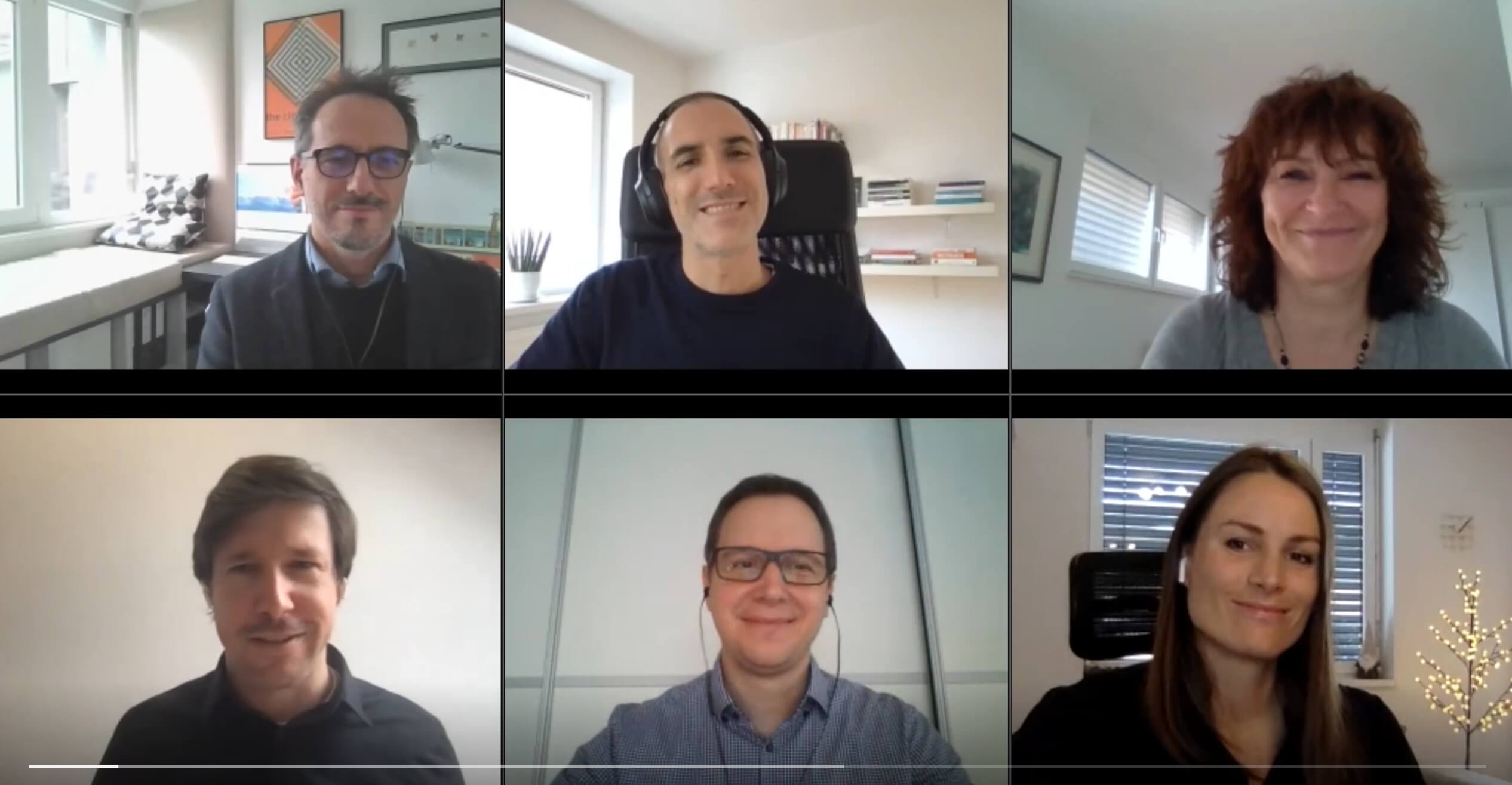Mikrocop's first digital roundtable
At the round table, Sara Isaković and representatives of Sparkasse, CorpoHub and Mikrocop impressed the audience with their exceptional spontaneity and authenticity combined with professionalism. The round table was skillfully led by Matej Praprotnik.

At the round table When change drives us forward interesting guests presented their views on adapting to the changes, both business and personal, that crises bring us.
Crises deepen the gap between agile and “sleeping” companies
Luka Brazda from Sparkasse pointed out that different organizations react differently to changes. Therefore, crises usually deepen the gap between those companies that were already somewhat "asleep" before the crisis and those whose culture is open to change, innovation and novelties. As a result, the latter companies also find it easier to survive times of crisis, recover faster and increase market advantage.
Ivo Vasev, Product Owner of Mikrocop's InDoc EDGE information management platform, presented interesting findings from a survey conducted by the IMD School of Management and Leadership on the conduct and performance of companies in recent global crises, pointing out that only just under 10 percent of companies thrive during and after the crisis. What sets these companies apart from the others is that they use a 'hybrid' approach that includes both defense strategies to increase productivity as well as additional investments in market development, opportunities and new business models. Research has shown that the crisis has the worst effect on companies that opt exclusively for defense strategies. They are preceded by companies that decide to invest and develop new business models.
Therefore, agile methodologies can help companies in the current situation to adapt quickly and be more responsive, believes Voranc Kutnik, a partner in CorpoHub and trainer of agile work and management methods: “What happened this year, also in the field of business, made a positive shift towards agility. It is important that employees and companies start to live this as actively as possible in practice.” He also pointed out that in agile organizations, the good functioning of teams is crucial, as they are able to solve complex challenges. Good teams build trust, nurture psychological security, and foster a growing mindset so that members can learn and improve. This is always a process that takes time and cannot be forced on people, but needs to be built gradually and persistently.
A new perception of digitization: from business efficiency to infrastructure for new stories!
The current crisis is driving digitalization. Ivo Vasev of Mikrocop observes: »If all these years we talked about digitization as a way to increase business efficiency (how we can do certain processes faster, better), now we have finally reached the point where we understand digitization as an infrastructure on which we can build new stories and focus on issues that are more important than digitization itself. These are: innovative products and services, optimization of the digital customer experience, new business models - which are the path of digital transformation. In addition, so far the focus has been on how to implement the tools, and now companies are focusing on how to start using these tools effectively in practice. The coronavirus situation has thus eliminated all the excuses we had until yesterday. Today, we can suddenly do all this digitally.«
Luka Brazda added that the tools themselves are not enough, but they must be used to the full capablility. This can only be achieved by organizations also ensuring that people are trained to use them. At Sparkasse, they took such an agile methodology as their own and spread it within the organization that people got to know it, internalize it, and get rid of fear and resistance. “The InDoc EDGE tool is an example that will allow us to keep pace with the times and increase our competitive advantage. We put together an agile team with our colleagues from Mikrocop, who became our partners in good and bad. This is the only possible way to break through in a modern complex environment that is very dynamic," said Luka Brazda.
The basis for our productivity, flexibility and innovation is psychological resilience
Olympian, psychologist and entrepreneur Sara Isaković presented the psychological basis that each of us must build in order to enable us greater productivity, flexibility and innovation. She said that behind this is a healthy way of thinking and psychological resilience so that the individual can adapt. Most often, it begins with observing the stories in our heads (which we all constantly tell ourselves) with the goal of determining if they are helping us or sabotaging us. She stressed that it is crucial that we maintain emotional stability and presence in these times. We can help ourselves with questions: What is in my power? How can I be as present and focused as possible? We can only succeed if we take care of our inner personal growth, in parallel.
Sara Isaković advised the participants to take several deep breaths during the day to relax the body, which feels in danger when it is overwhelmed. In addition, we also try to be more alert and down to earth. When the body is calm, the head is more relaxed, which results in faster and better self-control. Also important is the visualization technique, which refers to movies that we constantly play in our heads. It is wise to replace dramatic performances with scripts as we want them to happen. We need to do this consciously and remember to focus on it as many times as possible each day.